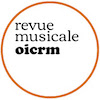 Appel de conférences pour la rencontre annuelle 2024 de l’IASPM-US, Drexel University in Philadelphia, PA, 11-14 avril 2024.
Appel de conférences pour la rencontre annuelle 2024 de l’IASPM-US, Drexel University in Philadelphia, PA, 11-14 avril 2024.
« “You know how we do”: Popular Music and Communality »
« Discussions of popular music frequently center individual actors: the star, the producer, or the listener. Such narratives allow for exploration of personal expression and insight. But they can overlook the communal elements and mass appeal of popular music. As the late Howard S. Becker illustrated in his foundational work on “art worlds,” popular music is the product of a group of creators: songwriters and lyricists, studio musicians, sound engineers, promoters, dancers, and more.
What can we learn by exploring the collaborative aspects of popular music? Many great musical moments result from surprisingly harmonious musical synergies. Conventional genre distinctions have resulted in new forms of cross-musical hybridity. Yet the social implications that follow from such genre distinctions persist, and continue to be reinforced by deep social, political, class, regional, and ethnic divisions. For many Americans, “freedom” has come to mean the right to express individual interests and pursue personalized goals, no matter the effects on others. Reminders during the early period of the COVID-19 pandemic that “we’re all in this together” may not have shifted self-focused Americans’ priorities to the communal. “Social” media, ostensibly a means of connecting people, often centers the individual while managing its promised “connections” for the company or advertisers’ own aims, such as harvesting users’ data. Even group activism around identity, oppression, and justice can risk being individualist in excluding some participants. However, when the nation’s attention turned toward police brutality and racism in the summer of 2020, the resulting protests tapped into collaborative and coalitional organizations that were already embedded in communities and ready to carry a movement forward to important social change. Individualism has also made possible previously new expressions of self beyond existing categories and norms, inspiring new collective identifications as well as calling for new coalitions with existing groups. Communal thinking seems needed when understanding humans as animals, who are at least partly dependent on one another for survival. How does this necessity of interaction feature in popular music? How does collaboration shift over time with the adaptation of new technologies? How might the joy of the communal in popular music inspire people to think more collectively in general? What can be learned from musical collaborations gone wrong, whether musically, socially, commercially, or otherwise, and due to mismatch, miscommunication, abuse of power, or exclusion, for example? What can we learn about communal engagement in musicking environments from examples of different popular music? »
Date limite de soumission : 20 novembre 2023.
Pour plus de détails : cliquez ici.
